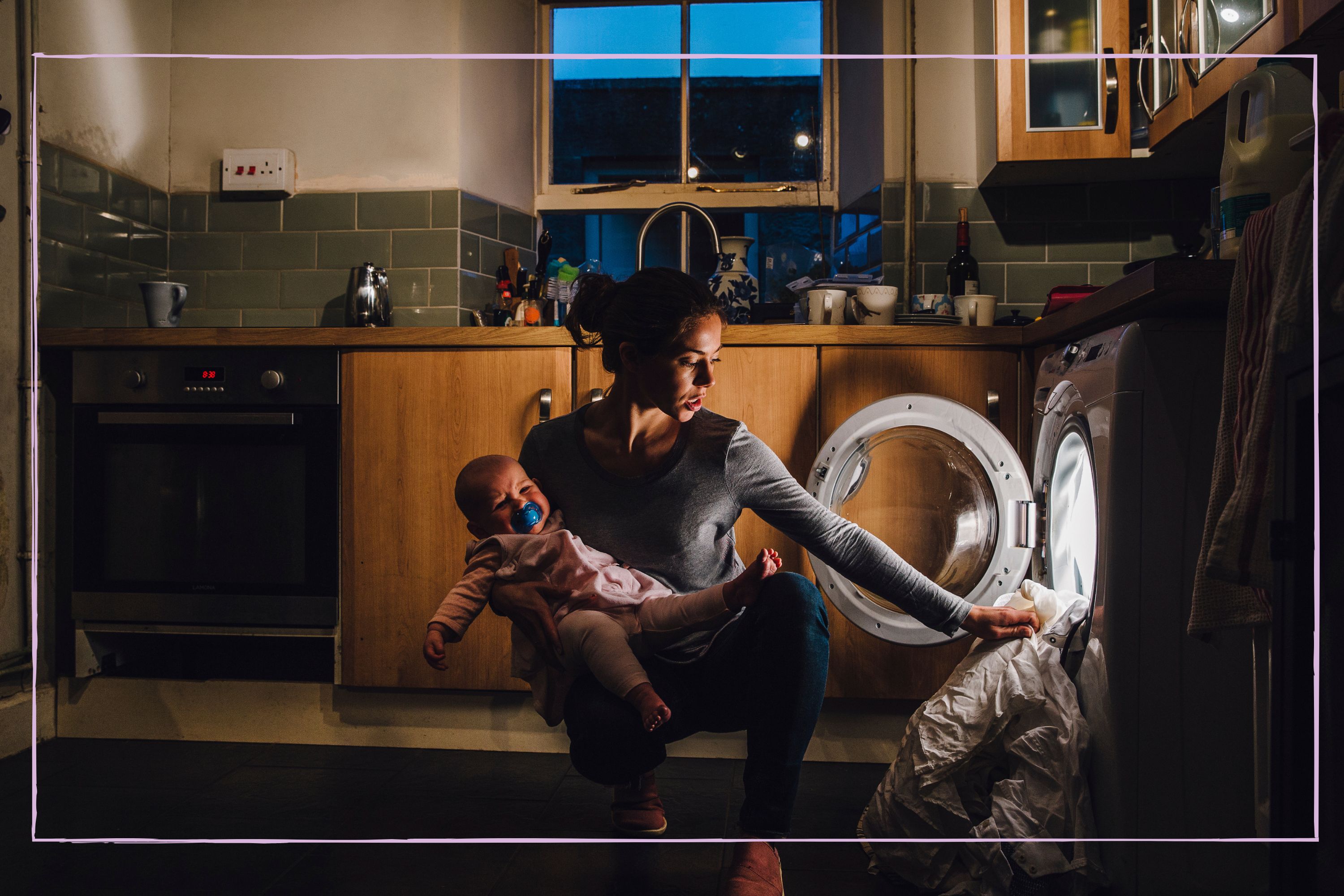Carrying the mental load can be beneficial, research finds - but men still need to do more to ease the burden
The mental load is still being carried by women, but research has suggested that the responsibility has some benefits


Research has found some of the benefits that come with carrying the mental load - but it confirms that the brunt of the work is still being done by women.
Parenting burnout is not uncommon. Juggling the demands of family life just to get your kids washed, dressed and fed every day is no small task, and if you find yourself feeling frazzled then the mental load could be to blame.
Sometimes referred to as kinkeeping, explaining the mental load isn't straightforward, but it essentially refers to the behind-the-scenes work you do to keep your family and home running. That includes writing the shopping list, planning meals, remembering birthdays, buying new school shoes, making appointments - the list goes on.
This mental burden - which is usually carried by women - can be exhausting. But while society has a lot of work to do to make sure the weight is shared more equally between the sexes, research has suggested that carrying the mental load may have some advantages too.
A study published in the Journal of Business and Psychology provided some important insights into how the mental load impacts well-being, by identifying three types of task that contribute to it:
- Managerial: Planning, organising, supervising, and scheduling.
- Emotional: The worry and concern that goes into maintaining a family's wellbeing, comforting children when they are upset and tending to everyone’s emotional needs.
- Cognitive: Anticipating the family’s needs and wants, making decisions for the family, researching different options, and remembering what needs to be done.
Unsurprisingly, the researchers found that women spend more time on all three types of task than men. However, while previous research published in the scientific journal Sex Roles found that women feel more overwhelmed and exhausted when they carry the bulk of the mental load, this new study showed that different types of invisible labour are associated with different outcomes.
- The cognitive load was associated with greater family satisfaction (being happier with your family) and improved job performance.
- The emotional load was associated with greater work-family conflict, exhaustion related both to job and family, sleep problems, and poorer job performance.
- The managerial load was positively associated with work-family enrichment (when your experience with your family enhances your work and your experience with work enhances your family life).
The emotional part of the mental load was the one associated with negative impacts, which backs up previous research from the study in Sex Roles that found ensuring a child’s wellbeing is particularly linked to distress and a feeling of emptiness in women.
Parenting advice, hot topics, best buys and family finance tips delivered straight to your inbox.
Despite this, the research offers a more nuanced view of the mental load, suggesting that some people find meaning and purpose in taking on some aspects of the invisible load in their family.
If you're a parent struggling with the mental load, perhaps this research can help reframe it for you - consider if there are any aspects of it that you enjoy or get a sense of accomplishment out of. When it comes to managing your family's emotional needs, seek help in this role from your partner (if you have one), wider family or even a mental health professional if you find it difficult. It might help to write out the 'invisible tasks' you do so you can try and divide them more equally, or work out which you can outsource elsewhere.
In related news, the mental load starts for women during pregnancy, and if you're struggling to teach your kids about it, then these 5 'game changing' phrases can help.

Ellie is GoodtoKnow’s Family News Editor and covers all the latest trends in the parenting world - from relationship advice and baby names to wellbeing and self-care ideas for busy mums. Ellie is also an NCTJ-qualified journalist and has a distinction in MA Magazine Journalism from Nottingham Trent University and a first-class degree in Journalism from Cardiff University. Previously, Ellie has worked with BBC Good Food, The Big Issue, and the Nottingham Post, as well as freelancing as an arts and entertainment writer alongside her studies. When she’s not got her nose in a book, you’ll probably find Ellie jogging around her local park, indulging in an insta-worthy restaurant, or watching Netflix’s newest true crime documentary.